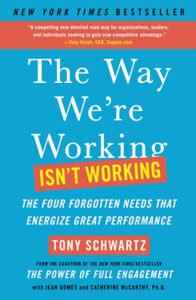|

|
The Way We’re Working Isn’t Working:
A friend or trusted mentor at work creates a secure base – a source of continuing emotional nourishments, safety, and security in the face of everyday challenges.
|
142 |
|

|
The Way We’re Working Isn’t Working:
…as long as leaders are unwilling to look honestly at themselves – to recognize their own fears and shortcomings – they can’t grow or change. The people they lead or manage also pay a price.
|
142 |
|
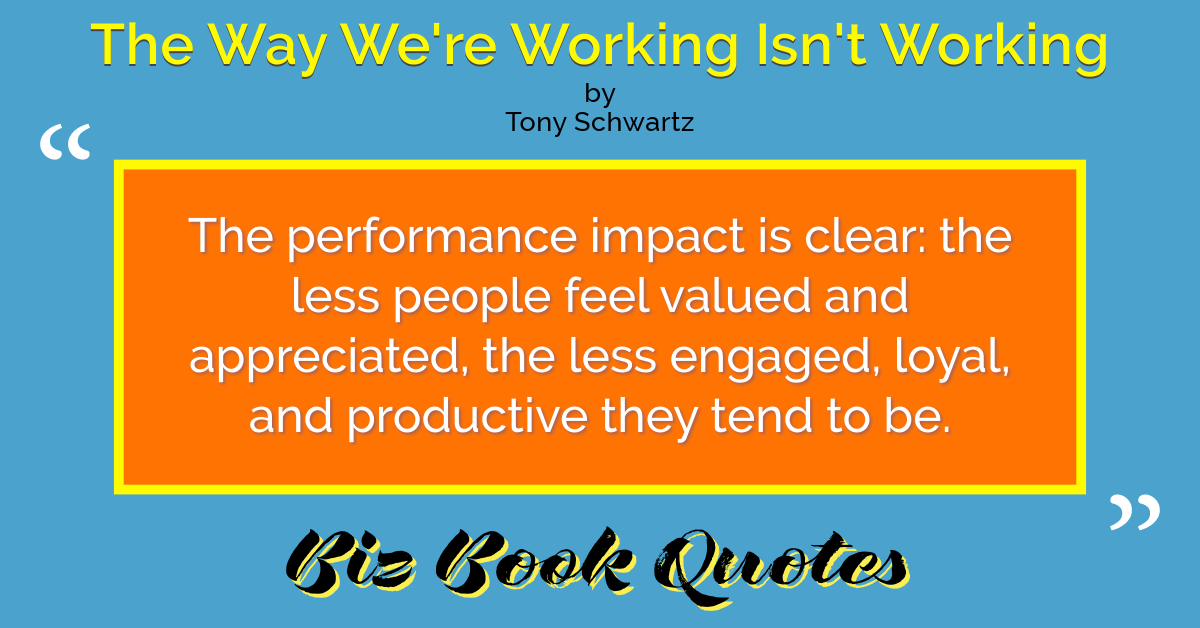
|
The Way We’re Working Isn’t Working:
The performance impact is clear: the less people feel valued and appreciated, the less engaged, loyal, and productive they tend to be.
|
142 |
|

|
The Way We’re Working Isn’t Working:
…high self-regard unbalanced by the capacity to value and appreciate others can be pernicious.
|
143 |
|

|
The Way We’re Working Isn’t Working:
Because our core need for value is so rarely acknowledged or addressed in most organizations, we typically try to keep this hunger under warps and invisible at work.
|
143 |
|

|
The Way We’re Working Isn’t Working:
Whether inflated self-regard is a thin cover for inadequacy or an inflated and unwarranted confidence, it’s at least as dysfunctional as insecurity.
|
143 |
|
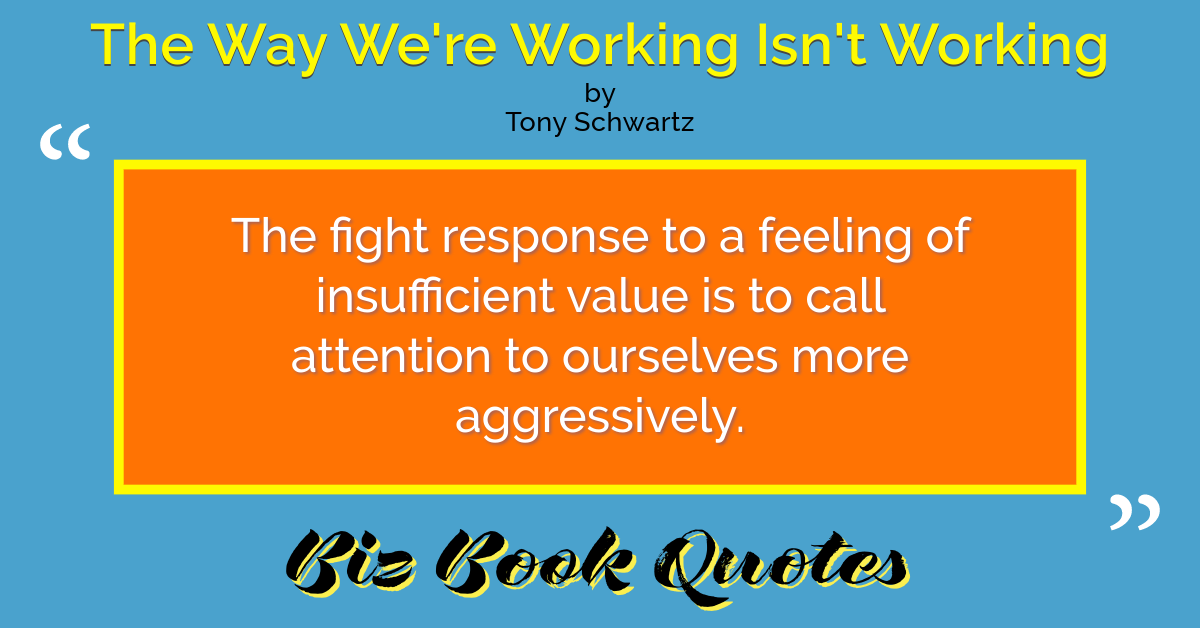
|
The Way We’re Working Isn’t Working:
The fight response to a feeling of insufficient value is to call attention to ourselves more aggressively.
|
144 |
|

|
The Way We’re Working Isn’t Working:
The leader who is secure in his own value is free to invest energy in empowering others.
|
144 |
|
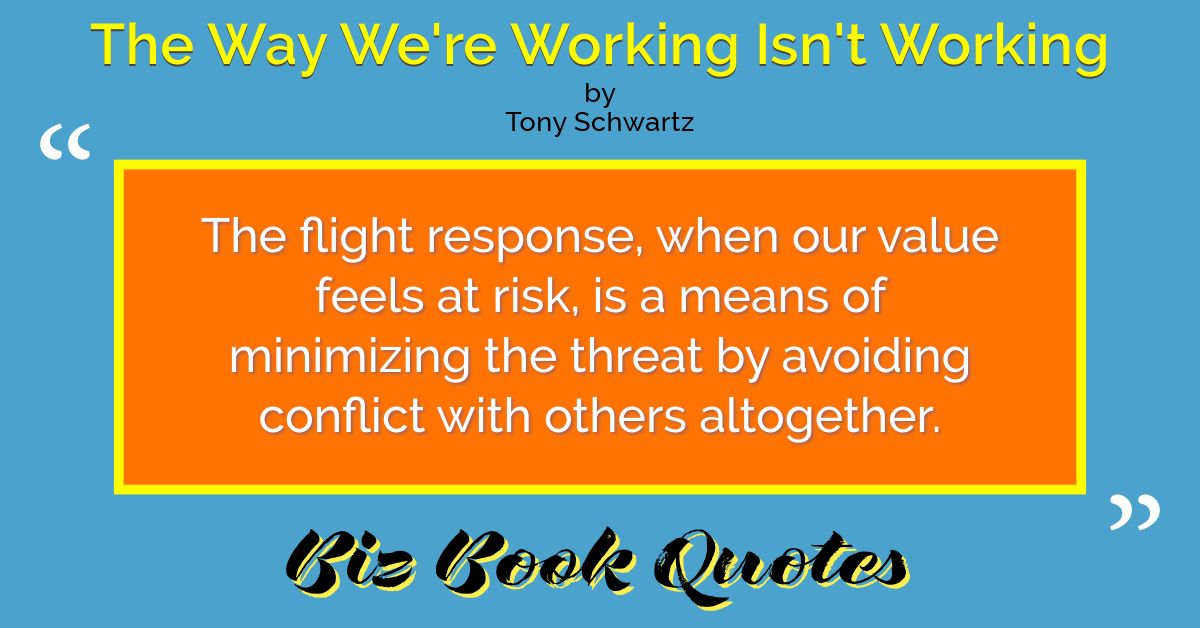
|
The Way We’re Working Isn’t Working:
The flight response, when our value feels at risk, is a means of minimizing the threat by avoiding conflict with others altogether.
|
144 |
|
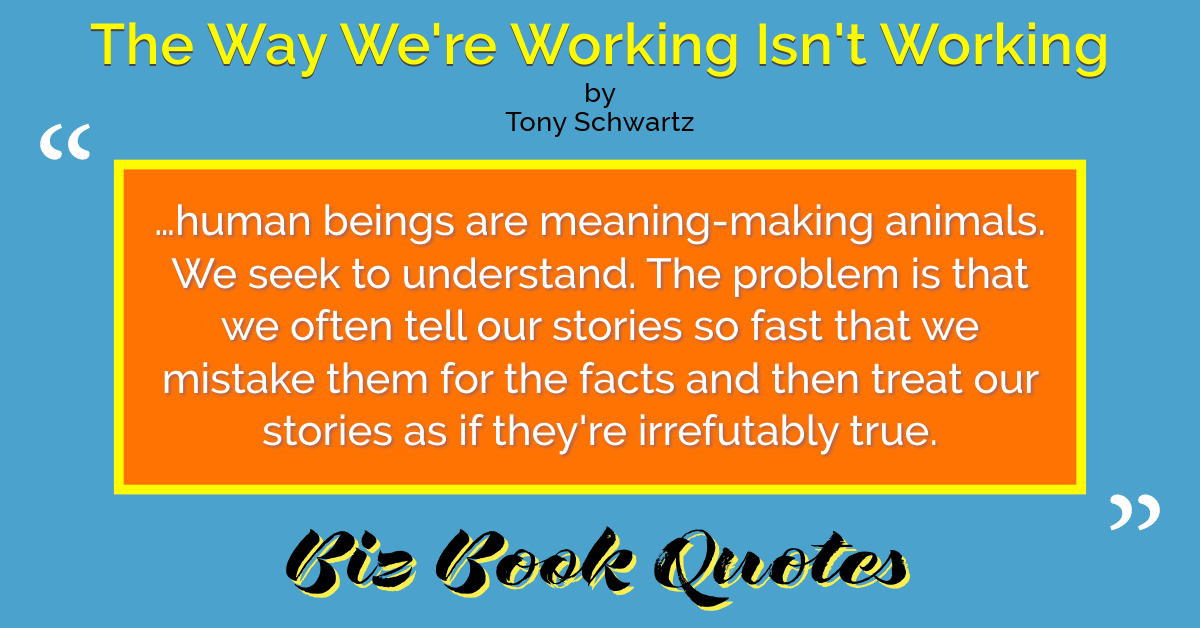
|
The Way We’re Working Isn’t Working:
…human beings are meaning-making animals. We seek to understand. The problem is that we often tell our stories so fast that we mistake them for the facts and then treat our stories as if they’re irrefutably true.
|
148 |
